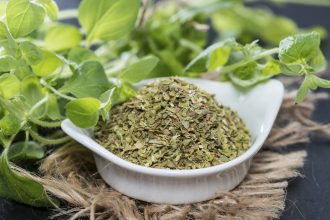October 1st, 2016
Contributing writer for Wake Up World
Used for thousands of years in Southeast Asia, kratom has attracted attention in the West as a potent natural medicinal that addresses a spectrum of health complaints — like pain, anxiety, sexual dysfunction, chronic fatigue, addiction, insomnia, stress and more. It’s such an effective herb that Thailand banned its cultivation and use — largely because it was such wildly popular, non-addictive alternative to opium, which ultimately threatened the economy.
Since history has a habit of repeating itself, it shouldn’t be surprising that the Drug Enforcement Administration (DEA) in the U.S. is following a similar path in proposing to outlaw the herb. Only this time, many feel kratom is being persecuted because it safely and economically replaces a range of pharmaceutical drugs.
Notably, this change was first initiated by the DEA as a ‘temporary’ scheduling order, an attempt to bypass the judicial review process that normally regulates Schedule I classification.
Dangerous Drug or Healing Miracle?
A tropical deciduous tree related to the coffee plant, kratom has similar effects to morphine, but doesn’t have the same addictive qualities. The leaves are often chewed in countries where it grows naturally, like Thailand, where it’s estimated that up to 70 percent of the male Thai population (illegally) consume between 10-60 leaves per day.
[pro_ad_display_adzone id=”110028″]
Two active chemical compounds within the leaves — mitragynine and 7-hydroxymitragynine — bind to opioid receptors in the body and are responsible for the medicinal effects of the plant. Kratom is several times more potent than morphine, and “dulls pain very well. … You can have very, very good analgesia,” says Dr. Ed Boyer, a professor of emergency medicine at the University of Massachusetts Medical School, who has studied the herb.
Additional reported benefits of kratom include:
Improved immunity: Research has shown that alkaloids found in kratom leaves help strengthen the immune system. Moreover, anecdotal testimonials claim the herb shortens the duration of illness — or prevents it altogether.
Increased energy: Interestingly, while kratom is known for it’s calming and soothing attributes, it also helps to boost energy when taken in smaller doses by increasing circulation, optimizing specific metabolic pathways and altering hormonal levels. Those suffering from chronic fatigue syndrome have had positive results with the herb.
Sexual stimulant: Alternative medicine practitioners often prescribe kratom for improving sexual libido and fertility. Increased blood flow and improved energy seem to play a role in the herbs effectiveness.
Mood disorders and stress: Similar to opium (without the addictive qualities), kratom has been used successfully to ease depression, anxiety, mood swings and stress without the side-effects associated with pharmaceutical drugs.
Addiction recovery: Used for healing addictions for hundreds of years, kratom has helped opium and heroin addicts, along with those addicted to pharmaceutical grade opiates, to side-step many of the withdrawal symptoms of the drugs.
Cardiovascular health: Kratom produces a noticeable drop in blood pressure by reducing inflammation — including that of the vascular system.
Diabetes: This study found that kratom helps to stimulate glucose transport in muscle cells, “implicating the folkloric use of M. speciosa leaves for treating diabetes.”
While kratom is considered generally safe, some have claimed the initial dose can produce a number of side-effects, like fatigue, nausea, headaches and constipation, which normally subside with continued use. It’s also not meant to be used in high doses over long periods of time — otherwise sleeplessness, low libido and darkening of the complexion can occur. To date, there have been no fatalities associated with the herb. However, there have been reports from physicians saying they’ve seen an uptick in cases of adverse effects due to ingesting kratom coming through emergency rooms.
Frank LoVecchio, medical director of the Banner Good Samaritan Poison and Drug Information Center in Phoenix, Arizona, says he’s seen an increase of emergency events coming through the center — up from two incidents in 2005 to six in 2011. He feels it’s definitely not safe.
“When we see people who take this, they sometimes get respiratory depression,” said LoVecchio, similar to the effect of opiates like heroin. “What’s odd is that some of them get really, really agitated, a little combative, (with) nausea and vomiting. They usually get medication for nausea and Valium to ease the paranoia” before being sent home.” [source]
Comparatively, narcotic pain reliever-related ER visits totaled 366,181 in 2011.
LoVecchio admits, however, that his encounters with kratom are one-sided because he only sees people who are suffering from ill effects of the herb, not people who believe they’re benefiting from it. Most of the people he treats are teenagers who are too young to buy alcohol, so they turn to kratom instead.
David DiSalvo offers this perspective in a recent article for Forbes:
When you investigate the stats… a couple of trends emerge. One is that the potential for harm is highest when someone is ingesting kratom with other substances. When someone who has taken kratom overdoses, it’s typical for a toxicology report to show they were also using other drugs, and the question then becomes which substances triggered the overdose. Accounts of kratom-only overdose are exceedingly rare, and some would argue they simply don’t exist. Fourteen of the 15 alleged kratom-related deaths cited by the DEA involved other drugs, as reported by NPR.
The other trend is that people experiencing negative outcomes with kratom are often using concentrated extracts, many times more potent than the traditional powdered leaf material… No question, these elements of the marketing and selling of kratom haven’t done this ancient medicinal plant any favors.
Nonetheless the DEA is attempting to re-classify kratom as a Schedule l drug — the same designation as LSD, heroin, marijuana and ecstasy — claiming it poses a major public health risk. Originally set for September 30, 2016, the ban has been postponed until the agency conducts a modified public notice and comment period.
Proponents of kratom, however, maintain that it’s less addictive than coffee — and certainly far less addictive than pharmaceutical pain killers, where an estimated 2 percent of Americans (or 4.7 million people) are addicted to prescription opiates.
Dr. Boyer offers this final thought:
”So, are they banning a substance that has potential clinical utility? Possibly. Are they banning a substance that has risk to people? Possibly. I think what I would prefer is to see somebody not ban it but at least do some research to see how bad the risk is, or how good the benefit is.”
Article sources
- www.samhsa.gov/data/sites/default/files/report_2083/ShortReport-2083.html
- www.jaoa.org/article.aspx?articleid=2094342
- www.ncbi.nlm.nih.gov/pmc/articles/PMC3670991
- www.ncbi.nlm.nih.gov/pmc/articles/PMC4425236
- www.ncbi.nlm.nih.gov/pubmed/20869223
- www.cnn.com/2016/08/31/health/kratom-schedule-i
- www.organicfacts.net/health-benefits/other/kratom-leaves.html
- www.cnn.com/2016/06/10/health/kratom-opioid-withdrawal-pain-relief-supplement
- www.usnews.nbcnews.com/_news/2012/03/19/10760892-asian-leaf-kratom-making-presence-felt-in-us-emergency-rooms
- www.pbinstitute.com/2-percent-americans-addicted-prescription-painkillers
- www.forbes.com/sites/daviddisalvo/2016/09/19/kratom-movement-draws-attention-from-congress-and-more-on-the-deas-plan-to-schedule-1/#d16621485fa0
About the author:
 Carolanne Wright enthusiastically believes if we want to see change in the world, we need to be the change. As a nutritionist, natural foods chef and wellness coach, Carolanne has encouraged others to embrace a healthy lifestyle of organic living, gratefulness and joyful orientation for over 13 years.
Carolanne Wright enthusiastically believes if we want to see change in the world, we need to be the change. As a nutritionist, natural foods chef and wellness coach, Carolanne has encouraged others to embrace a healthy lifestyle of organic living, gratefulness and joyful orientation for over 13 years.
Through her website Thrive-Living.net, she looks forward to connecting with other like-minded people from around the world who share a similar vision. You can also follow Carolanne on Facebook, Twitter and Pinterest.
Further reading from Carolanne Wright:
- An Interview With Dr. Andrew Wakefield: Why We Need Safe Vaccines Immediately — and How to Make it Happen
- Renowned Harvard Psychologist Says ADHD is Largely a Fraud
- The Most Eco-Friendly Nation on the Planet is Now Carbon Negative
- Plastic Waste in the Ocean Will Outnumber Fish by 2050
- Mind Control, Subliminal Messages and the Brainwashing of America
- Monsanto Charged with Crimes Against Nature and Humanity – Set to Stand Trial in 2016
- Plastic-Eating Mushroom Discovered in the Amazon Rainforest — A Solution for Our Trash Saturated World?
- Over 100 Scientific Studies Agree: Cannabis Annihilates Cancer
- Why Every Parent Should Consider Unschooling
- First U.S. City Produces More Electricity Than It Uses — With 100% Renewable Technology
- If You Care About Animals and the Earth, Here’s Why You Need to Boycott Palm Oil Immediately
- Basic Income Guarantee: A Surprisingly Cost-Effective Method for Eliminating Poverty
[pro_ad_display_adzone id=”110027″]







